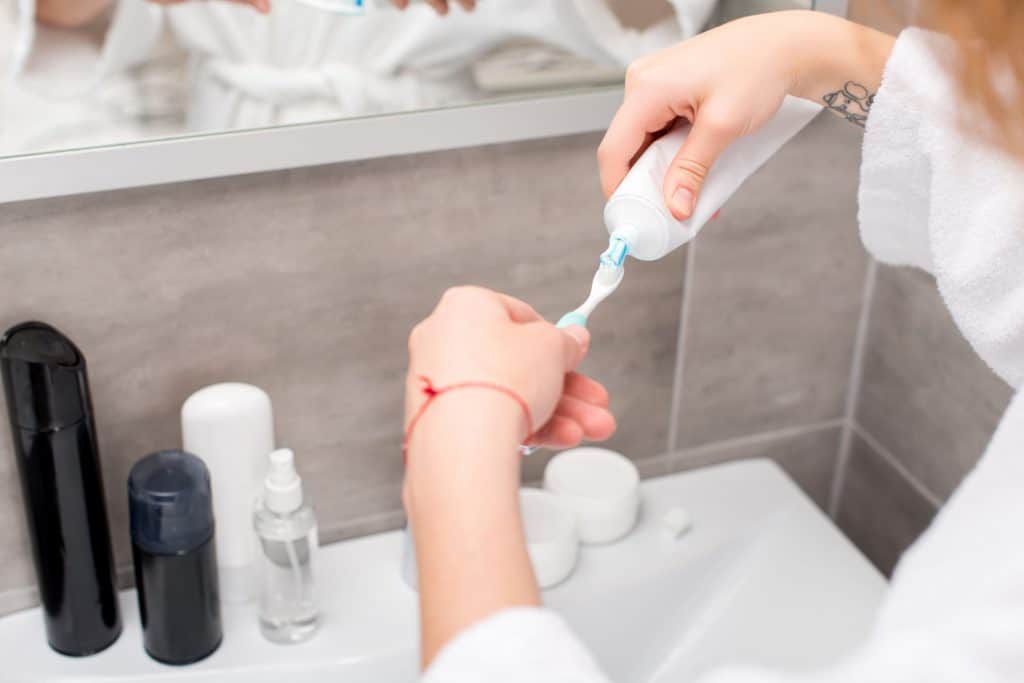Diabetes and Dental Health – Problems, Treatment, Information
Posted by Prescription Hope - See Editorial Guidelines (Last Updated On: Fri Apr 21 2023)
Diabetes, regardless of the type of diabetes, can impact the many aspects of your body’s health. Your oral health can be significantly affected by diabetes. If you have diabetes, then you may be at a higher risk of having dental health complications, especially if your blood sugar levels are uncontrolled. Diabetes and Dental Health: Uncontrolled blood sugars caused by diabetes can lead to complications of the mouth, including gum disease, dry mouth, and cavities. Those with diabetes should go to the dentists regularly and take action to keep up with their dental hygiene. In this article, we’ll discuss diabetes and dental health to help individuals gain a better understanding of how the two are interconnected.
Diabetes and Dental Health Overview
 The main reason diabetes causes multiple health complications is due to high blood sugar. Uncontrolled blood sugars caused by diabetes can weaken white blood cells, which are responsible for fighting against bacterial infections.
Bacterial infections can often occur in the mouth. So, if a person with diabetes is not properly managing their condition, then they are at a higher risk for having dental health complications.
By controlling your blood sugar levels and managing your diabetes properly, you can lower your risk of having oral health problems.
Individuals that smoke and have diabetes are 20 times more likely to develop dental health complications. Smoking can also impair the healing of the tissues within the gums of the mouth. Therefore, to prevent diabetes and dental health problems from worsening, you should consider quitting smoking if you currently use tobacco products.
One concern here is that diabetes and dental health problems can become cyclical. Meaning, poor blood sugar control can lead to an increased risk of infections and problems with your gums. If this occurs, infections and gum problems can cause blood sugars to spin out of control. This results in worsening of both diabetes and your oral health problems.
The main reason diabetes causes multiple health complications is due to high blood sugar. Uncontrolled blood sugars caused by diabetes can weaken white blood cells, which are responsible for fighting against bacterial infections.
Bacterial infections can often occur in the mouth. So, if a person with diabetes is not properly managing their condition, then they are at a higher risk for having dental health complications.
By controlling your blood sugar levels and managing your diabetes properly, you can lower your risk of having oral health problems.
Individuals that smoke and have diabetes are 20 times more likely to develop dental health complications. Smoking can also impair the healing of the tissues within the gums of the mouth. Therefore, to prevent diabetes and dental health problems from worsening, you should consider quitting smoking if you currently use tobacco products.
One concern here is that diabetes and dental health problems can become cyclical. Meaning, poor blood sugar control can lead to an increased risk of infections and problems with your gums. If this occurs, infections and gum problems can cause blood sugars to spin out of control. This results in worsening of both diabetes and your oral health problems.
Diabetes and Dental Health Problems
The most common dental problem that those with diabetes struggle with is periodontal disease. However, multiple problems can occur revolving around your oral health when diabetes is involved. Poor control over your diabetes can cause severe damage to your blood vessels that can suppress the supply of nutrients to areas of your body. Here is a list of common dental health problems one may experience if their blood sugar is not controlled.Gum Disease (gingivitis) & Advanced Gum Disease (periodontitis)
The leading cause of gum disease is plaque buildup. Continuous plaque buildup can harden into tartar if it is not removed. Plaque can build from food, bacteria, and saliva. The plaque can irritate the gums and lead to inflammation. The inflammation can cause bleeding, swelling, and redness. Diabetes can contribute to gum disease if your blood sugar is continuously elevated. The elevated blood sugar levels can increase the sugar level that is in saliva. Sugar in your saliva presents a great opportunity for bacteria to grow, increasing your risk of gum disease. Severe gum disease can cause tooth loss. The bacteria causing gum disease can enter your bloodstream through the gum tissue and affect other parts of your body. This can lead to serious complications for people with diabetes.Cavities
Cavities and tooth decay can be common when it comes to diabetes and dental health. Plaque buildup on the teeth contains acid, which attacks the surface of the teeth. The surfaces of the teeth are known as enamel and dentin. The higher your blood sugar, the more likely you are to experience the wearing of your enamel and dentin. This leads to tooth decay and an increased risk of cavities.Thrush
Thrush is when a yeast-like fungus called “Candida albicans” begins to grow in your mouth and throat. Thrush means you may have painful red and white patches in your mouth. This yeast-like fungus grows most in warm, moist areas. Thus, making the mouth and throat a common area. High blood sugar creates an environment where yeast can grow, causing those with diabetes to have an increased risk. Having a weakened immune system also puts a person at an increased risk for having thrush. Regular and untreated thrush can lead to more serious complications and infections. However, most cases are mild and will go away with proper treatment.Dry Mouth
Dry mouth is a common symptom of high blood sugar. Dry mouth can lead to tooth decay, gum disease, and thrush because saliva is not present, keeping your mouth moist and bathing your teeth. Since dry mouth can lead to infections, it can also be a cause of high blood sugar levels.Symptoms and Warning Signs
 When it comes to diabetes and dental health, you must be aware of your blood sugar levels. Elevated blood sugar has its own symptoms, which can lead to an increased risk of oral health problems.
Here is a list of symptoms related to dental health problems that may require medical intervention.
When it comes to diabetes and dental health, you must be aware of your blood sugar levels. Elevated blood sugar has its own symptoms, which can lead to an increased risk of oral health problems.
Here is a list of symptoms related to dental health problems that may require medical intervention.
- Bleeding in the mouth when cleaning or eating
- Swollen and red gums
- Persistent bad breath
- Receding gum lines
- Gaps appearing between the teeth and the teeth moving apart
- Loose teeth
- Abscesses
- Frequent thirst
- Dry feeling in throat or mouth
- Sores in mouth
- Redness and soreness in the throat that makes it difficult to eat and swallow
- Loss of taste
- Toothache or sensitivity
- Brown or black staining on tooth
- Pain when you bite down
Treatment and Prevention
Developing a plan of action between you and your doctor is important to ensure you are taking care of your diabetes and dental health. The first step in doing this is to make a commitment to yourself. You have to make a commitment to yourself to manage your diabetes properly and to have proper dental hygiene. You should be setting goals for your A1c level every three months and your daily blood sugar control. Without establishing and tracking these goals, you will not know how well you are managing your diabetes. Understanding the importance of making this commitment is crucial for individuals to start taking steps of action. To maintain proper dental hygiene, individuals should brush their teeth at least twice a day – once in the morning and once at night. This helps prevent excessive plaque buildup. You should consult your dentist about what toothbrush is right for you.
Flossing at least once a day is also crucial for individuals to maintain proper dental hygiene. Flossing prevents plaque from forming in between teeth and along gumlines.
You should schedule a dentist appointment every six months to ensure your teeth and overall dental health is being maintained. Discuss your diabetes condition with your dentist. The dentist will be able to provide you with farther medical advice to help you manage your diabetes and dental health properly.
As mentioned previously, smoking can increase your risk of gum disease. It can also cause insulin to be more resistant to cells, leading to uncontrolled blood sugars. If you smoke or use other tobacco products, you should talk to your doctor about steps you can take to help you quit.
On top of all this, for you to prevent your diabetes and dental health from getting out of control, look for signs and symptoms. Know what the symptoms are mentioned previously and monitor your dental health.
To maintain proper dental hygiene, individuals should brush their teeth at least twice a day – once in the morning and once at night. This helps prevent excessive plaque buildup. You should consult your dentist about what toothbrush is right for you.
Flossing at least once a day is also crucial for individuals to maintain proper dental hygiene. Flossing prevents plaque from forming in between teeth and along gumlines.
You should schedule a dentist appointment every six months to ensure your teeth and overall dental health is being maintained. Discuss your diabetes condition with your dentist. The dentist will be able to provide you with farther medical advice to help you manage your diabetes and dental health properly.
As mentioned previously, smoking can increase your risk of gum disease. It can also cause insulin to be more resistant to cells, leading to uncontrolled blood sugars. If you smoke or use other tobacco products, you should talk to your doctor about steps you can take to help you quit.
On top of all this, for you to prevent your diabetes and dental health from getting out of control, look for signs and symptoms. Know what the symptoms are mentioned previously and monitor your dental health.

